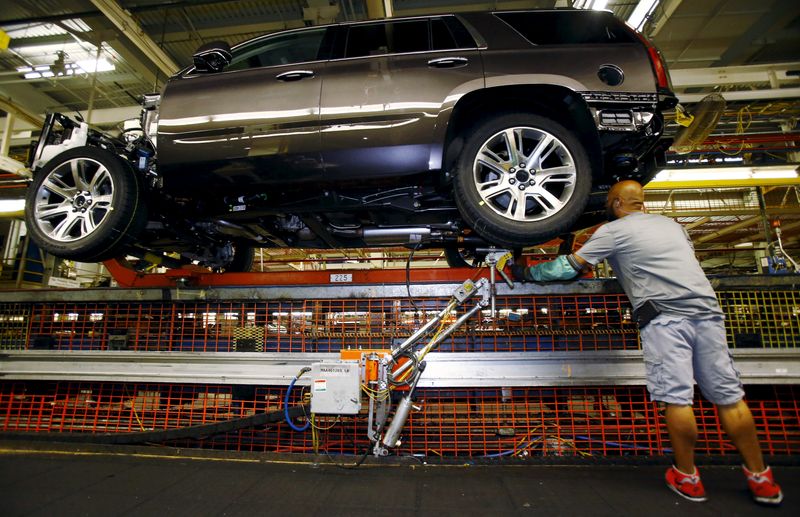GM raises bar for employee performance with new ratings system


By Nora Eckert
DETROIT (Reuters) -General Motors is changing the way it rates the performance of its salaried employees in the U.S. in a move to better reward high-performers and put pressure on low-performers to improve or leave.
According to an internal memo viewed by Reuters, the Detroit automaker is now rewarding its top 5% of employees with 150% bonuses, higher than what was available in the previous system, to better attract and retain the talent needed to achieve its goals in the cut-throat automotive transformation to electric vehicles.
“To ensure GM has the talent needed to achieve our ambitious goals, a more intentional process is required that sets clear expectations for performance and holds people accountable,” according to the memo, which was first reported by Reuters.
Legacy automakers like GM and Ford have been tweaking their performance evaluation systems for U.S. salaried employees to better compete with the stock-heavy pay packages of EV rivals like Tesla and Rivian.
GM’s new performance ranking system evaluates employees on a five-scale system, from “significantly exceeds expectations” to “does not meet expectations.” Employee bonuses are tied to their ranking. The company has about 53,000 salaried employees in the U.S.
“GM is proud to have a culture where we foster and reward high performance, which will help us attract and retain top talent in a competitive industry environment. That includes everything from ensuring employees know what is expected of them, providing feedback so they can develop, and rewarding them for their performance,” a GM spokesperson said.
GM employees will be evaluated on the updated rankings during their year-end performance review, the spokesperson said.
Ford CEO Jim Farley said in February that changing the company’s performance review system to make bonuses more tied to creating shareholder value has been an important part of its business transformation.
“We’ve learned that the right talent is not sufficient. Over the last two years, it’s been imperative that we go to a right performance management system. It’s a fundamental change in the way we’re running the company,” Farley told analysts on the earnings call earlier this year.
The new GM system adds a top and bottom tier to the previous three-category one, which separated employees into “partially meets expectations,” “achieves expectations” or “exceeds expectations.”
Kristine Bhalla, partner at consulting firm ClearBridge Compensation Group, said the additional rankings for employees can allow for a more precise evaluation of where they stand.
“Having a five-point scale is a common approach, and allows companies to differentiate performance in a more nuanced way than a three-point scale,” Bhalla said.
In the new rankings, GM estimates about 70% of the organization would land in the “achieves” middle category, receiving 100% of their target bonuses.
The estimated 5% of the “does not meet expectations” category would be subject to what the company calls “appropriate action … including being exited from the company.”
Major automakers have been in cost-cutting mode to preserve funds amid the expensive EV transition, slimming down their white-collar ranks in the process. GM offered buyouts to most of its salaried employees in March 2023, and in May of that year cut several hundred full-time contract workers. Ford and Stellantis have also cut their ranks over the last year.
Bhalla said the new ranking system may not add significant cost in the vein of bonuses or severance packages in the long-term.
“While sometimes these types of changes can result in incremental cost, in many cases, there is not necessarily an additional cost to the company, it just allows them to spend their dollars in a more targeted way to pay employees commensurate with their performance,” she said.
(Reporting by Nora Eckert; Editing by Ben Klayman, Nick Zieminski and Daniel Wallis)








